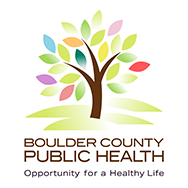The COVID-19 pandemic has affected millions of people around the world, and while many have been able to recover without complications, some experience lingering symptoms (e.g., fatigue, brain fog, chest pain, shortness of breath) that can persist for several weeks or months—even after testing negative for the virus. At least four weeks after infection, post-COVID conditions can first be identified. These conditions are commonly referred to as “long COVID,” “long-haul COVID,” or “chronic COVID.”
Symptoms
Post-COVID symptoms can vary significantly from person to person and can last for different periods of time. Some people may experience only mild symptoms that go away quickly, while others may have more severe symptoms that persist for weeks or even months.
One of the most commonly reported post-COVID symptoms is fatigue, which can range from mild tiredness to severe exhaustion. This fatigue can be accompanied by brain fog, a feeling of confusion, or difficulty concentrating.
Post-COVID symptoms are broad and can include:
General Symptoms
- Tiredness or fatigue
- Symptoms that get worse after physical or mental exertion
- Fever
Respiratory and Heart Symptoms
- Difficulty breathing or shortness of breath
- Cough
- Chest pain
- Heart palpitations
Neurological Symptoms
- Difficulty thinking or concentrating (i.e., brain fog)
- Headache
- Sleep problems
- Dizziness or lightheadedness upon standing
- Pins-and-needles feelings
- Change in smell or taste
- Depression or anxiety
Digestive Symptoms
- Diarrhea
- Stomach pain
Other Symptoms
- Joint or muscle pain
- Skin changes: rash, tingling, hives, pain and sensitivity
- Changes in menstrual cycles
It is important to note that while these post-COVID symptoms can be debilitating, they are generally not life-threatening. However, if you are experiencing any of these symptoms and they are causing significant distress or impairment in your daily life, it is important to seek medical attention. While it’s possible that people with these symptoms may not receive an appropriate diagnosis, care, or treatment from a provider, people with post-COVID symptoms are encouraged to seek medical care.
Prevention
The best way to prevent post-COVID conditions is to stay up to date on your COVID-19 vaccinations and boosters. Other ways to prevent COVID-19 infection and lower your risk of post-COVID conditions include avoiding close contact with people who have suspected or confirmed COVID-19 illness, wearing a mask, and practicing good hand hygiene, which means using hand sanitizer (containing at least 60% alcohol) or washing your hands with soap and water for 20 seconds.
Treatment
Doctors and researchers are still learning about post-COVID conditions and the best ways to treat them. It’s important to talk to your doctor if you have been infected, have any symptoms, or have any concerns or questions. You may want to seek a professional diagnosis from an experienced provider who can ensure you receive proper monitoring, care, and follow-up.
The Bottom Line
Post-COVID conditions can be a frustrating and difficult experience for people who have recovered from the virus. However, by seeking medical attention, making lifestyle changes, and remaining vigilant about your symptoms, it is possible to manage these conditions and continue to live a healthy and fulfilling life.
Additional Resources
- Long COVID (CDC)
- Caring for people with Post-COVID Conditions (CDC)
- Healthcare Provider Appointments for Post-COVID Conditions (CDC)
- Post COVID-19 conditions in children and adolescents (American Academy of Pediatrics)
- COVID ‘Long Haulers’: Long-Term Effects of COVID-19 (Johns Hopkins)
- Expanding our understanding of post-COVID-19 conditions (WHO)
- Long COVID Kids
- Long COVID Alliance
- Post-COVID Conditions (CDPHE)



